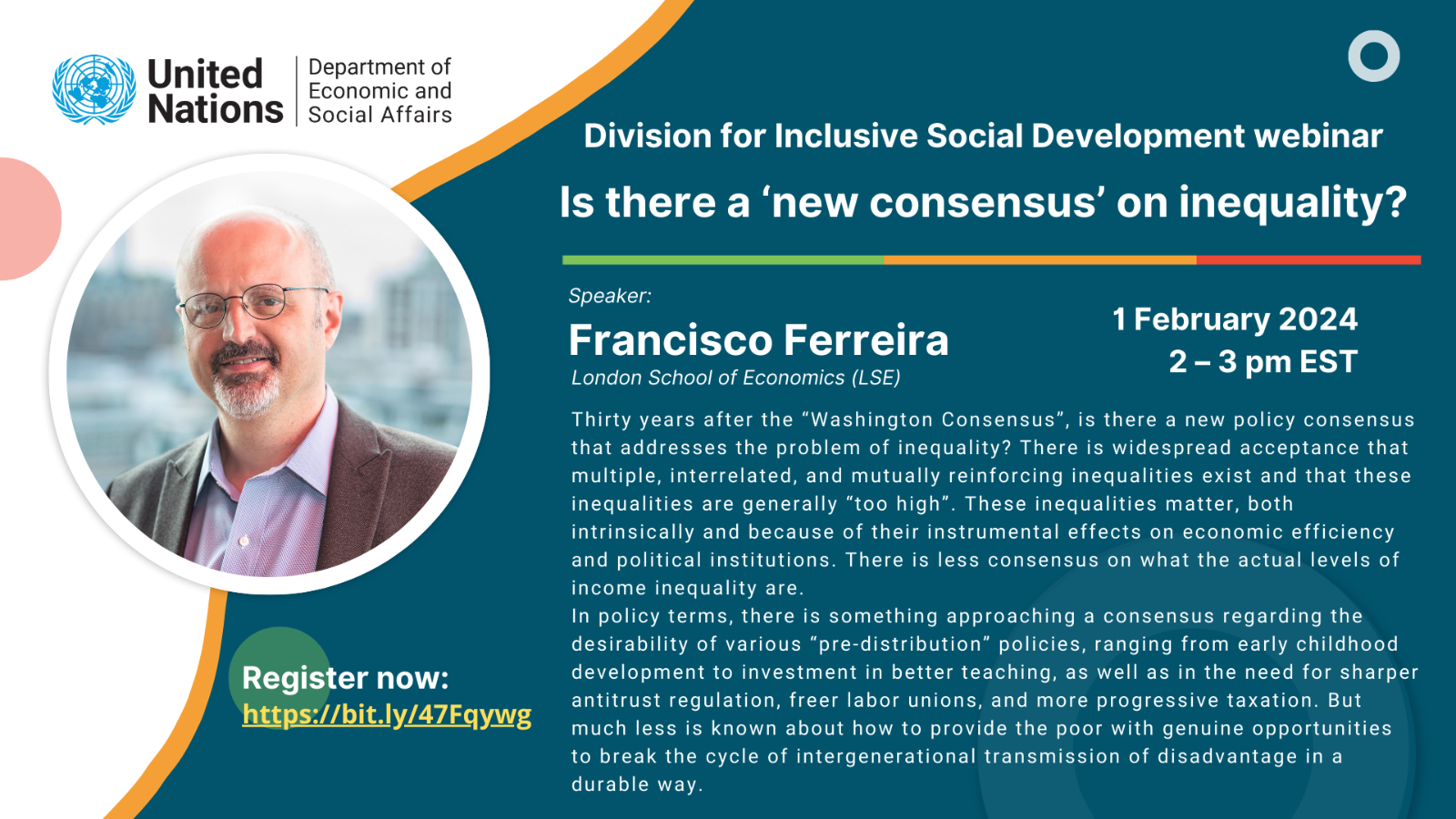
Thirty years after the “Washington Consensus”, is there a new policy consensus that addresses the problem of inequality? There is widespread acceptance that multiple, interrelated, and mutually reinforcing inequalities exist and that these inequalities are generally “too high”. These inequalities matter, both intrinsically and because of their instrumental effects on economic efficiency and political institutions. There is less consensus on what the actual levels of income inequality are.
In policy terms, there is something approaching a consensus regarding the desirability of various “pre-distribution” policies, ranging from early childhood development to investment in better teaching, as well as in the need for sharper antitrust regulation, freer labor unions, and more progressive taxation. But much less is known about how to provide the poor with genuine opportunities to break the cycle of intergenerational transmission of disadvantage in a durable way.
Francisco H. G. Ferreira is the Amartya Sen Professor of Inequality Studies and Director of the International Inequalities Institute at the London School of Economics. Francisco works on the measurement, causes, and consequences of inequality and poverty in developing countries. His work has been published widely and awarded various prizes. He is a Research Fellow of the Institute for the Study of Labor (IZA); an Affiliated Scholar with the Stone Center at CUNY; and a former President of the Latin American and Caribbean Economic Association. Prior to joining the faculty at LSE, he had a long career at the World Bank but also taught at PUC-Rio and the Paris School of Economics. He was born in São Paulo, Brazil, and holds a PhD in Economics from the LSE.
 Welcome to the United Nations
Welcome to the United Nations